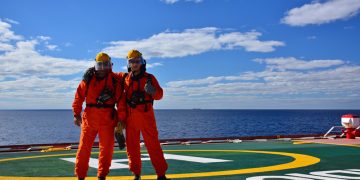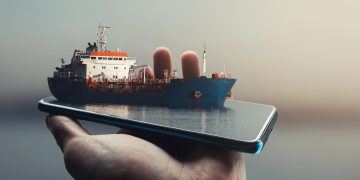A look at LNG shipping
Worldwide sourcing and distribution of LNG has grown into a major industry player while seeking to balance the growing global appetite for affordable energy with environmental concerns. MAN Turbo and Diesel created an infographic regarding LNG shipping which is a booming market, driving growth at every stage of the process chain. Lower emissions Natural gas burns far cleaner than other fossil fuels do, producing 30% less carbon dioxide than petroleum and 45% less than coal, as well as significantly lower levels of sulfur and nitrogen oxides. “Natural gas and air are mixed before entering the combustion chamber and ignited via a small quantity of injected MDO/MGO pilot fuel. The combustion process according to the Otto-cycle ensures the lowest nitrous oxide (NOx) emissions when operating in gas mode, which are lower than projected future emission limits. For the sake of fuel flexibility, the engine can operate alternatively in liquid mode, where fuel oil is injected via conventional main pumps as in the 48/60B HFO engine,” explains Dietmar Zutt, Head of Sales Merchant Marine at MAN Diesel & Turbo. A booming market The booming LNG market is driving more than ship production, however. There is significant growth and investment at every stage ...
Read more






















































